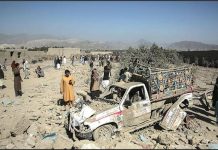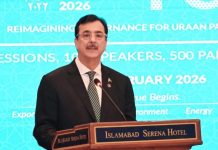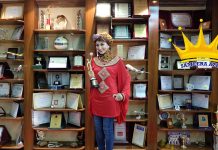
Written By Muhammad Zeb Peshawar City
Education is the foundation upon which nations build their future, but for education to truly fulfill its purpose, it must recognize the uniqueness of every individual. Personalized learning is not just a modern teaching method — it’s a revolution in how we nurture minds and shape futures. In a country like Pakistan, where millions of children dream of a better tomorrow, personalized learning can become the bridge between hope and reality.
Every child is different. They come from different backgrounds, carry different dreams, and learn in different ways. Yet, for decades, our education systems have followed a one-size-fits-all approach, often leaving behind those who struggle to keep up or those who wish to go beyond the curriculum. Personalized learning changes this by tailoring education to the needs, abilities, and interests of each student. It turns classrooms into spaces of creativity, curiosity, and compassion.
Why Personalized Learning Matters
Imagine a classroom where a teacher understands that one student learns better through visuals, while another thrives through hands-on activities. Picture a system where a struggling child receives extra support without fear of judgment and a fast learner explores advanced topics without being held back. This is the essence of personalized learning — an approach where every child’s potential is recognized and nurtured.
In Pakistan, where education faces numerous challenges like overcrowded classrooms, outdated curricula, and limited resources, personalized learning can be a game-changer. With the rise of digital tools and innovative teaching methods, it’s now possible to adapt lessons to suit individual learning styles, ensuring that no child is left behind.
The Role of Technology in Personalized Learning
Technology plays a vital role in making personalized learning accessible and effective. Educational apps and online platforms use artificial intelligence to analyze a student’s progress and suggest customized learning paths. Virtual classrooms allow students from remote areas to access quality education, and interactive content makes learning more engaging and enjoyable.
In a country like Pakistan, where many children lack access to qualified teachers and modern facilities, these technological solutions can bridge the gap. Imagine a child in a small village learning mathematics through an engaging app or a teenager in a distant town attending an online science class taught by experts — this is the promise of personalized learning.
Compassion at the Heart of Education
But personalized learning is not just about technology or teaching methods; it’s about empathy and understanding. A personalized approach means recognizing a child’s fears, celebrating their strengths, and supporting their dreams. It’s about a teacher who notices the artist in one student, the scientist in another, and the leader in yet another.
When we personalize education, we send a powerful message to every child: You matter. Your dreams matter. Your potential matters. This message can change lives. It can inspire a struggling student to keep going, encourage a shy child to speak up, and give every learner the confidence to chase their ambitions.
The Future of Personalized Learning in Pakistan
For Pakistan to progress, we must invest in education that empowers individuals. Personalized learning can play a crucial role in reducing dropout rates, improving academic performance, and nurturing a generation of creative, confident, and capable individuals. Schools, teachers, and policymakers must collaborate to make personalized learning a reality, ensuring every child has access to education tailored to their unique needs.
In the end, education is not just about passing exams — it’s about building character, fostering creativity, and unlocking potential. Personalized learning makes education meaningful, powerful, and life-changing. It gives every child the chance to shine — and when our children shine, so does the nation.

























